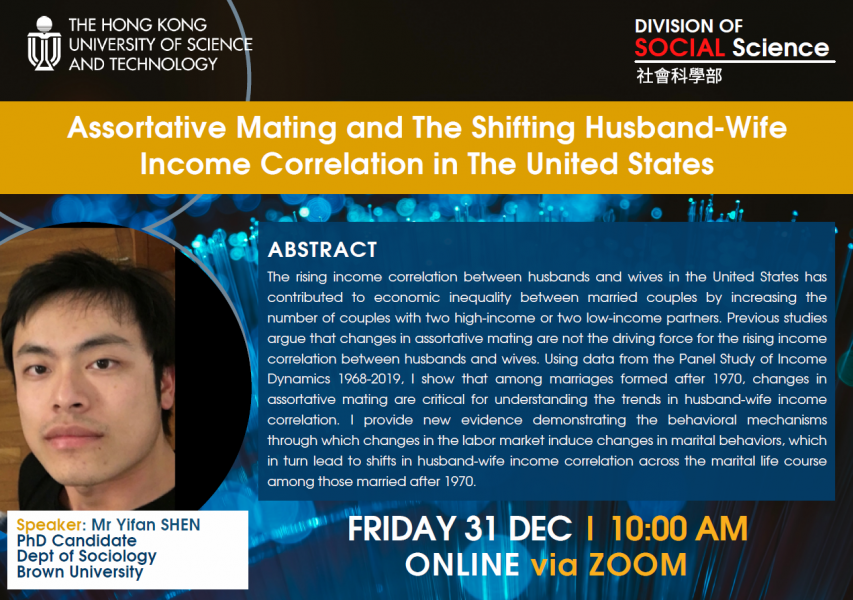The rising income correlation between husbands and wives in the United States has contributed to economic inequality between married couples by increasing the number of couples with two high-income or two low-income partners. Previous studies argue that changes in assortative mating are not the driving force for the rising income correlation between husbands and wives. Using data from the Panel Study of Income Dynamics 1968-2019, I show that among marriages formed after 1970, changes in assortative mating are critical for understanding the trends in husband-wife income correlation. I provide new evidence demonstrating the behavioral mechanisms through which changes in the labor market induce changes in marital behaviors, which in turn lead to shifts in husband-wife income correlation across the marital life course among those married after 1970.
Yifan Shen is a PhD candidate in sociology at Brown University. He studies family demography (with a focus on assortative mating), income inequality, and education. His work has appeared in Demography and is forthcoming in American Journal of Sociology.
Remarks
- ZOOM link will be sent via email, for HKUST members ONLY
- Please use your HKUST ITSC account to join the zoom meeting.
- This meeting is being recorded. By joining, you are giving consent for this meeting to be recorded.

